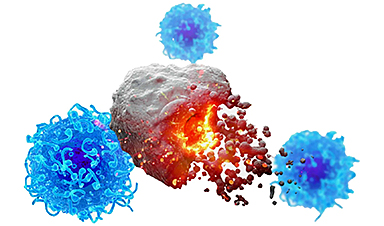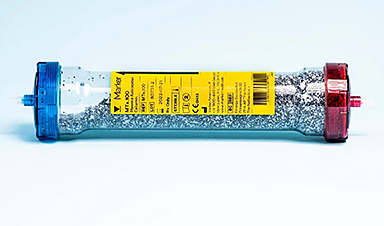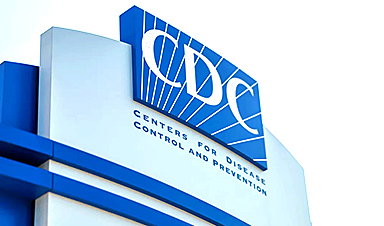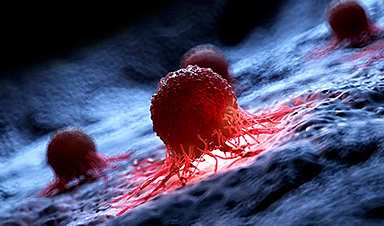The method triggers immune responses that inhibit melanoma, triple-negative breast cancer, lung carcinoma, and ovarian cancer.
Cancer treatment vaccines have been in development since 2010, when the first was approved for prostate cancer, followed by another in 2015 for melanoma. While many therapeutic (rather than preventive) cancer vaccines have been researched since then, none have received approval. A major challenge in their development is identifying tumor antigens that are distinct enough from normal cells to trigger a strong immune response.
Researchers at Tufts University have now created a cancer vaccine designed to enhance the immune system’s ability to recognize tumor antigens. This approach generates a powerful immune response and establishes long-term immunological memory, reducing the likelihood of tumor recurrence. Unlike traditional cancer vaccines that target specific antigens, this new vaccine utilizes a lysate—a mix of protein fragments derived from any solid tumor—eliminating the need to identify a single tumor-specific antigen.
The vaccine they produced worked against multiple solid tumors in animal models, including melanoma, triple-negative breast cancer, Lewis lung carcinoma, and clinically inoperable ovarian cancer.
Developed by a team led by Qiaobing Xu, professor of biomedical engineering, the method builds on earlier work expressing specific antigens for an enhanced immune response by making lipid nanoparticles that carry mRNA into the lymphatic system.
“We have significantly improved the cancer vaccine design by making it applicable to any solid tumor from which we can create a lysate, possibly even tumors of unknown origin, without having to select mRNA sequences, and then adding another component – called AHPC – that helps channel the protein fragments from the cancer cells into the immunological response pathway,” said Xu.
How the Vaccine Works
Unlike traditional vaccines designed to prevent infectious diseases caused by bacteria or viruses, cancer vaccines work by stimulating the body’s immune system to recognize and attack cancer cells. And unlike most vaccines against pathogens, they are designed to be therapeutic rather than preventive—acting to eliminate an existing disease. Some preventive cancer vaccines do exist, but they are generally targeted to viruses that are linked to cancers, such as HPV linked to cervical cancer.
The key to the increased potency of the new cancer vaccine lies in its ability to direct tumor-derived antigens into a cellular pathway that efficiently presents the antigens to the immune system. Think of the presentation as a kind of police lineup, where each antigen is presented for the immune system to decide if it can be considered a “suspect.”
Rounding up the antigens and getting them into an antigen presenting cell like a macrophage or dendritic cell (the police stations, if we continue with the analogy) is generally an inefficient process for tumor antigens. This is where the Tufts research team applied a two-stage method to power up the process.
A Two-Stage Approach to Enhancing Immune Response
First, to make sure they round up all tumor proteins-of-interest, they modified the mix of tumor proteins with the AHPC molecule, which in turn recruits an enzyme to put a tag on the protein called a ubiquitin. It allows the cell to identify and process the protein into fragments for presentation to the immune system.
The researchers then packaged the AHPC-modified tumor proteins into tiny lipid (fat molecule) bubbles, specifically designed to home in on lymph nodes, where most of antigen presenting cells can be found.
Tested in animal models of melanoma, triple-negative breast cancer, Lewis lung carcinoma, and inoperable ovarian cancer, the vaccine elicited a strong response by cytotoxic T cells, which attack the growing tumors, suppressing further growth and metastasis.
“Fighting cancer has always been an arsenal approach,” said Xu. “Adding cancer vaccines to surgical excision, chemotherapy, and other drugs used to enhance cytotoxic T cell activity could lead to improved patient responses and longer-term prevention of cancer recurrence.”
Reference: “Antitumour vaccination via the targeted proteolysis of antigens isolated from tumour lysates” by Yu Zhao, Donghui Song, Zeyu Wang, Qingqing Huang, Fan Huang, Zhongfeng Ye, Douglas Wich, Mengting Chen, Jennifer Khirallah, Shuliang Gao, Yang Liu and Qiaobing Xu, 28 November 2024, Nature Biomedical Engineering.
DOI: 10.1038/s41551-024-01285-5
The study was funded by the National Institutes of Health.
News
A Grain of Brain, 523 Million Synapses, Most Complicated Neuroscience Experiment Ever Attempted
A team of over 150 scientists has achieved what once seemed impossible: a complete wiring and activity map of a tiny section of a mammalian brain. This feat, part of the MICrONS Project, rivals [...]
The Secret “Radar” Bacteria Use To Outsmart Their Enemies
A chemical radar allows bacteria to sense and eliminate predators. Investigating how microorganisms communicate deepens our understanding of the complex ecological interactions that shape our environment is an area of key focus for the [...]
Psychologists explore ethical issues associated with human-AI relationships
It's becoming increasingly commonplace for people to develop intimate, long-term relationships with artificial intelligence (AI) technologies. At their extreme, people have "married" their AI companions in non-legally binding ceremonies, and at least two people [...]
When You Lose Weight, Where Does It Actually Go?
Most health professionals lack a clear understanding of how body fat is lost, often subscribing to misconceptions like fat converting to energy or muscle. The truth is, fat is actually broken down into carbon [...]
How Everyday Plastics Quietly Turn Into DNA-Damaging Nanoparticles
The same unique structure that makes plastic so versatile also makes it susceptible to breaking down into harmful micro- and nanoscale particles. The world is saturated with trillions of microscopic and nanoscopic plastic particles, some smaller [...]
AI Outperforms Physicians in Real-World Urgent Care Decisions, Study Finds
The study, conducted at the virtual urgent care clinic Cedars-Sinai Connect in LA, compared recommendations given in about 500 visits of adult patients with relatively common symptoms – respiratory, urinary, eye, vaginal and dental. [...]
Challenging the Big Bang: A Multi-Singularity Origin for the Universe
In a study published in the journal Classical and Quantum Gravity, Dr. Richard Lieu, a physics professor at The University of Alabama in Huntsville (UAH), which is a part of The University of Alabama System, suggests that [...]
New drug restores vision by regenerating retinal nerves
Vision is one of the most crucial human senses, yet over 300 million people worldwide are at risk of vision loss due to various retinal diseases. While recent advancements in retinal disease treatments have [...]
Shingles vaccine cuts dementia risk by 20%, new study shows
A shingles shot may do more than prevent rash — it could help shield the aging brain from dementia, according to a landmark study using real-world data from the UK. A routine vaccine could [...]
AI Predicts Sudden Cardiac Arrest Days Before It Strikes
AI can now predict deadly heart arrhythmias up to two weeks in advance, potentially transforming cardiac care. Artificial intelligence could play a key role in preventing many cases of sudden cardiac death, according to [...]
NanoApps Medical is a Top 20 Feedspot Nanotech Blog
There is an ocean of Nanotechnology news published every day. Feedspot saves us a lot of time and we recommend it. We have been using it since 2018. Feedspot is a freemium online RSS [...]
This Startup Says It Can Clean Your Blood of Microplastics
This is a non-exhaustive list of places microplastics have been found: Mount Everest, the Mariana Trench, Antarctic snow, clouds, plankton, turtles, whales, cattle, birds, tap water, beer, salt, human placentas, semen, breast milk, feces, testicles, [...]
New Blood Test Detects Alzheimer’s and Tracks Its Progression With 92% Accuracy
The new test could help identify which patients are most likely to benefit from new Alzheimer’s drugs. A newly developed blood test for Alzheimer’s disease not only helps confirm the presence of the condition but also [...]
The CDC buried a measles forecast that stressed the need for vaccinations
This story was originally published on ProPublica, a nonprofit newsroom that investigates abuses of power. Sign up to receive our biggest stories as soon as they’re published. ProPublica — Leaders at the Centers for Disease Control and Prevention [...]
Light-Driven Plasmonic Microrobots for Nanoparticle Manipulation
A recent study published in Nature Communications presents a new microrobotic platform designed to improve the precision and versatility of nanoparticle manipulation using light. Led by Jin Qin and colleagues, the research addresses limitations in traditional [...]
Cancer’s “Master Switch” Blocked for Good in Landmark Study
Researchers discovered peptides that permanently block a key cancer protein once thought untreatable, using a new screening method to test their effectiveness inside cells. For the first time, scientists have identified promising drug candidates [...]





















